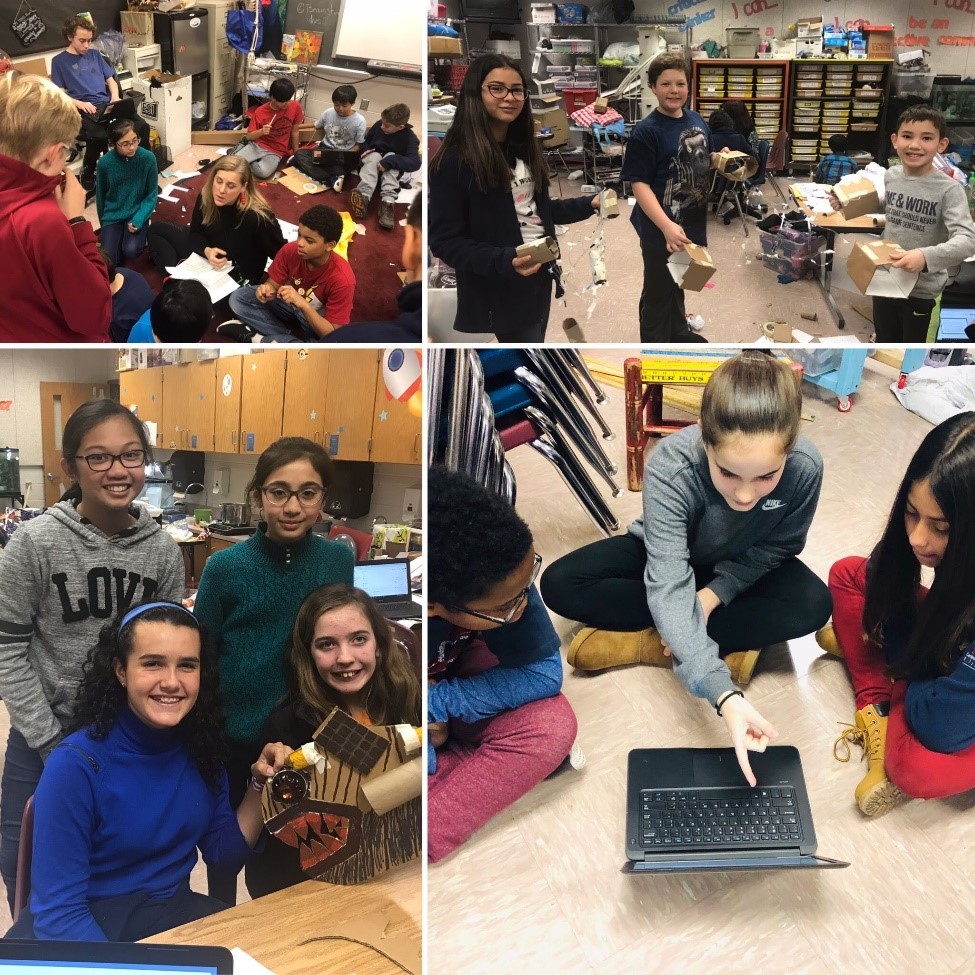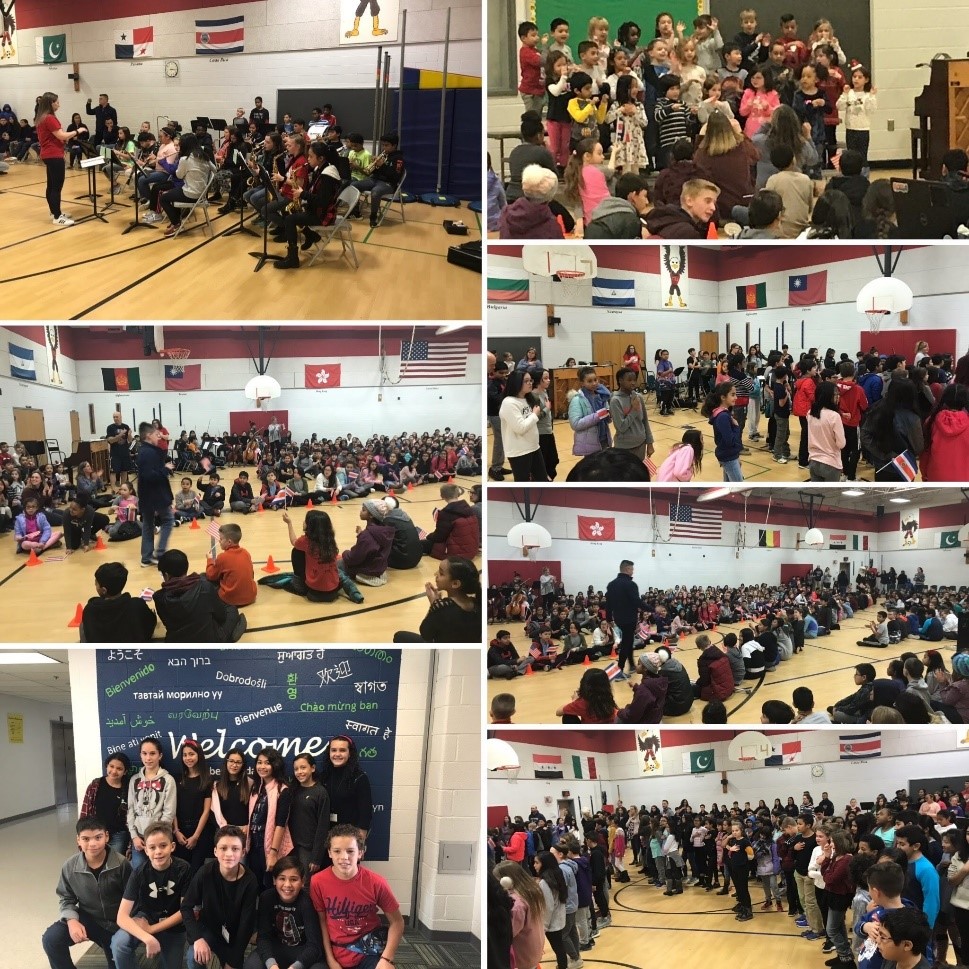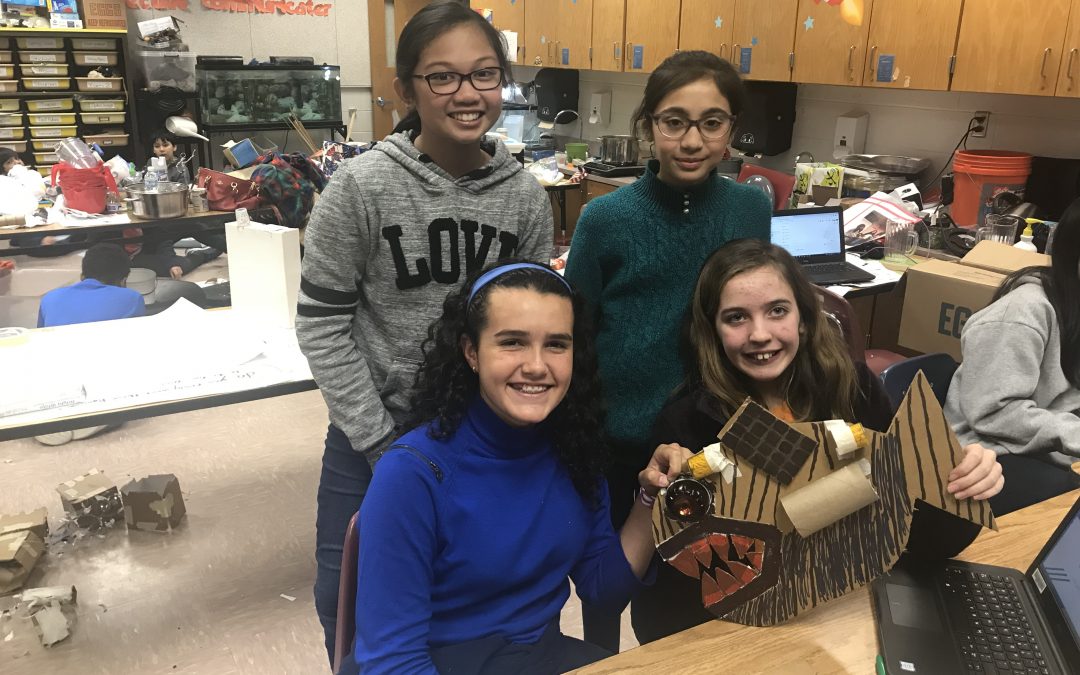By. Josh Douds, Centreville Elementary School
Developing Ethical and Global Citizens is what teachers and schools are tasked with at Fairfax County Public Schools. It is one of the five Portrait of a Graduate skills we hope to instill in our students by the time they exit our school system. According to the Portrait of a Graduate, an Ethical and Global Citizen:
- Acknowledges and understands diverse perspectives and cultures when considering local, national, and world issues.
- Contributes to solutions that benefit the broader community.
- Communicates effectively in multiple languages to make meaningful connections.
- Promotes environmental stewardship.
- Understands the foundations of our country and values our rights, privileges, and responsibilities.
- Demonstrates empathy, compassion, and respect for others.
- Acts responsibly and ethically to build trust and lead.
At Centreville Elementary School (CES) our students speak over 35 different languages and 55 different dialects. Our school is located on the western side of Fairfax County, Virginia, in the suburbs of Washington D.C. Our community is infused with global cultures, beliefs, and values. Students are proud of their heritage and are willing to learn about new cultures. We are an Accelerator School in Green Schools National Network’s Catalyst Network and have earned many accolades for our focus on sustainability, such as becoming the first elementary school in the nation to earn permanent Green Flag status from the National Wildlife Federation.
One of our programs at CES is called the Global Classroom Project. For the past four years, this program has integrated and developed communication, collaboration, and critical and creative thinking skills to inspire students to become ethical and global citizens. This is all done through a lens of education for sustainability. CES partners with a school in Cartago, Costa Rica named Centro Educativo Bilingüe Sonny (Sonny). Since this program began, both CES staff and Sonny teachers have had opportunities to visit each other’s schools, CES staff traveling to Costa Rica twice and Sonny teachers making the trip to Centreville two times as well. These visits have allowed both schools to build relationships, plan out the year’s schedule and activities, and learn about each other’s culture.
The Global Classroom Project currently lives in our fourth-, fifth-, and sixth-grade Advanced Academics Classes. Our students are paired with Sonny students through Google Apps for Education and other technology platforms. Initially, paired students work to learn more about each other and their communities with a focus on developing relationships. This leads to a collaborative Place-, Problem-Based Learning (PPBL) activity associated with education for sustainability. Through this project, our students have learned about Costa Rican culture and sustainability efforts and developed communication and collaboration skills, as well as a greater appreciation for how students from another country live. The program has many positive attributes; however, last year we decided to take it to the next level.

The beginning of the 2018 – 2019 school year’s Global Classroom Project started the same as always. Students from CES and Sonny started to build relationships through a variety of online forums. They compared and contrasted life between the two countries. The change in the program came when it was time to complete the PPBL. Instead of using online mediums to communicate and collaborate, we decided to have our friends from Costa Rica come to the United States for a visit! In January 2019, twelve students and five staff members from Sonny traveled to Virginia and immersed themselves in the CES community for twelve days. They lived with CES families and attended our school through the duration of their visit. The students and teachers from Sonny were welcomed as honored guests and greeted with a pep rally. As any good hosts would do, we did our best to expose them to American culture and landmarks. This was fun as well as eye-opening for our students. They discovered that we often take many of our local landmarks for granted.
The power of the visit revealed itself during the PPBL lesson. The students were tasked with solving a problem associated with United Nations Sustainable Development Goal 14, Life Below the Water. Both the United States and Costa Rica have issues and concerns around the pollution of local bays. For CES students, the Chesapeake Bay is woven into the science curriculum throughout their elementary experience. Meanwhile, Sonny students spend time learning about Costa Rica’s Drake Bay. These two important bays were used in the PPBL to make the project place relevant to all students. How do we address the trash and pollution that are building up in the Chesapeake and Drake Bays? This was the question posed to students.
Initially, CES students worked with Sonny students to compare and contrast the bays in each local environment and research water sustainability. Based off what they learned, the students utilized critical and creative thinking strategies to develop innovative devices that removed trash from the water. Prototype models of their inventions were crafted out of upcycled materials. Students used the scientific design process while developing their innovations, continually making modifications to improve efficiency and effectiveness. After students felt they had a solid product, they presented their projects orally to a panel of peers, sharing changes they made to the designs and the lessons that they learned. The relationships built between the students through the PPBL face-to-face experience were amazing. Michele Giardina (lead Global Classroom Teacher) had this to say about the experience: “Students worked together to promote environmental stewardship and contribute to solutions that benefit the broader community.”
At CES, we are always working to increase our cultural proficiency. The impact of this global partner visit on our students, staff, and school was exponential. We overheard students say, “I realized that we are more alike than different.” Mrs. Giardina shared, “The CES students demonstrated empathy, compassion, and respect for their Sonny classmates.” To put it simply, cultural proficiency was gained! Sixth-grade teacher Lauren Sobol shared, “The best part of the experience was hosting the kids and seeing how much fun they had learning about our culture.” She went on to explain, “The benefits of this experience for the CES students were learning about other cultures and how things are done in another country (global citizen), learning to communicate with individuals who speak other languages (communication), collaboration skills, authentic application of writing/communication skills, and comparing and contrasting their likes, dislikes, and lives with students from another culture who are similar in age.”

Through this experience we have learned a few lessons. When we replicate this visit again, we will decrease the duration and number of activities. CES and Sonny students and staff shared that they were exhausted at the end of the trip due to a lack of downtime and busy daily agendas. We will also give students more time to collaborate in the school setting. Although the students worked together to solve the PPBL effectively, their time was limited. Students also shared that they would have liked more time to have candid conversations to learn what it’s like to be a student/kid in another culture.
With all that said, the experience and visit were an enormous success for all parties involved. Our goal in the near future is to take a group of students and staff to Cartago, Costa Rica to visit and collaborate with our friends at Sonny.
Author Bio
Josh Douds is the current principal of Centreville Elementary School, which is part of Fairfax County Public Schools. He has been in education for 20 years and has held a variety of positions: general education (3-6), special education teacher (2-6), math resource (K-6), assistant principal, and principal. In addition to his position at Centreville, Josh is an adjunct professor at Fitchburg State University in Massachusetts. There he instructs an online course, Principles for Success for Effective Administrators. He earned his bachelor’s degrees from Clarion University of Pennsylvania and his master’s degree from George Mason University. Josh believes that sustainability education is not a trend or a fad, but a vehicle to engage students in real-world knowledge and lifelong lessons.

